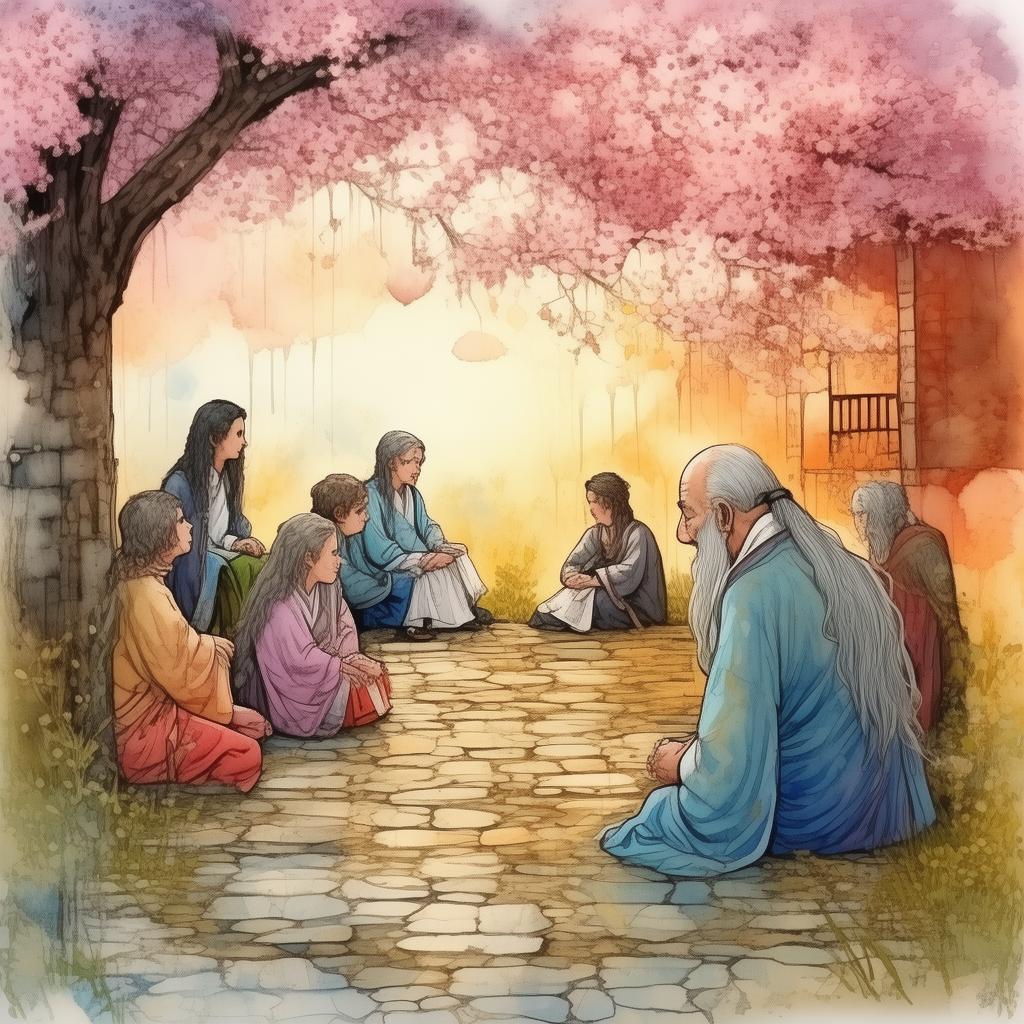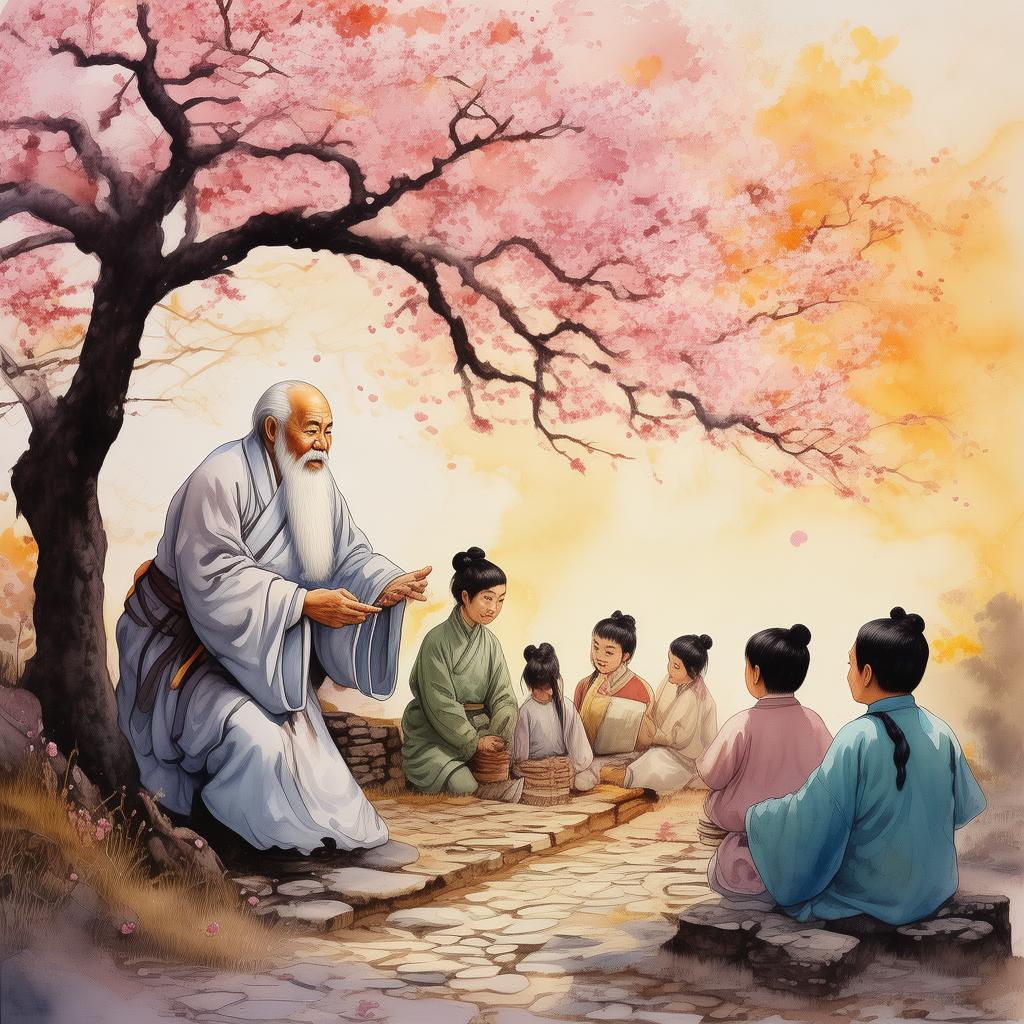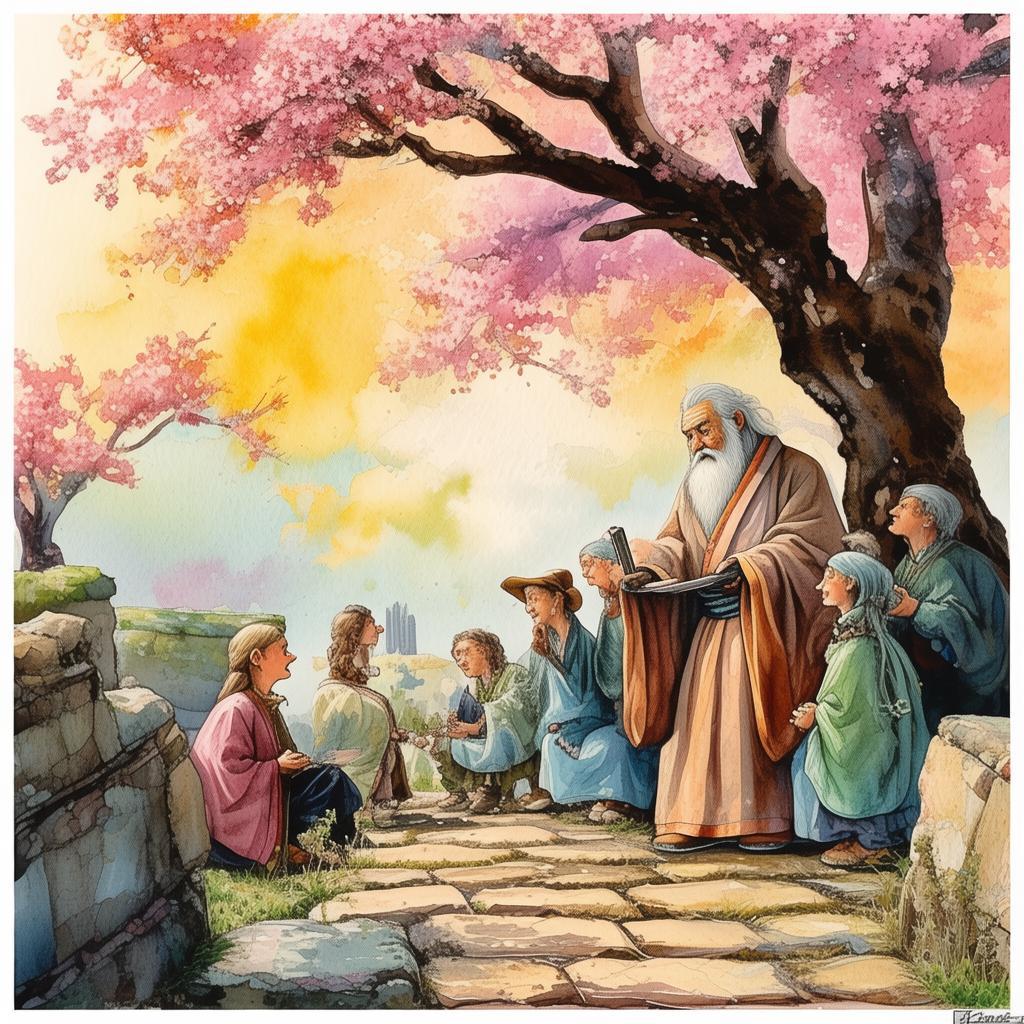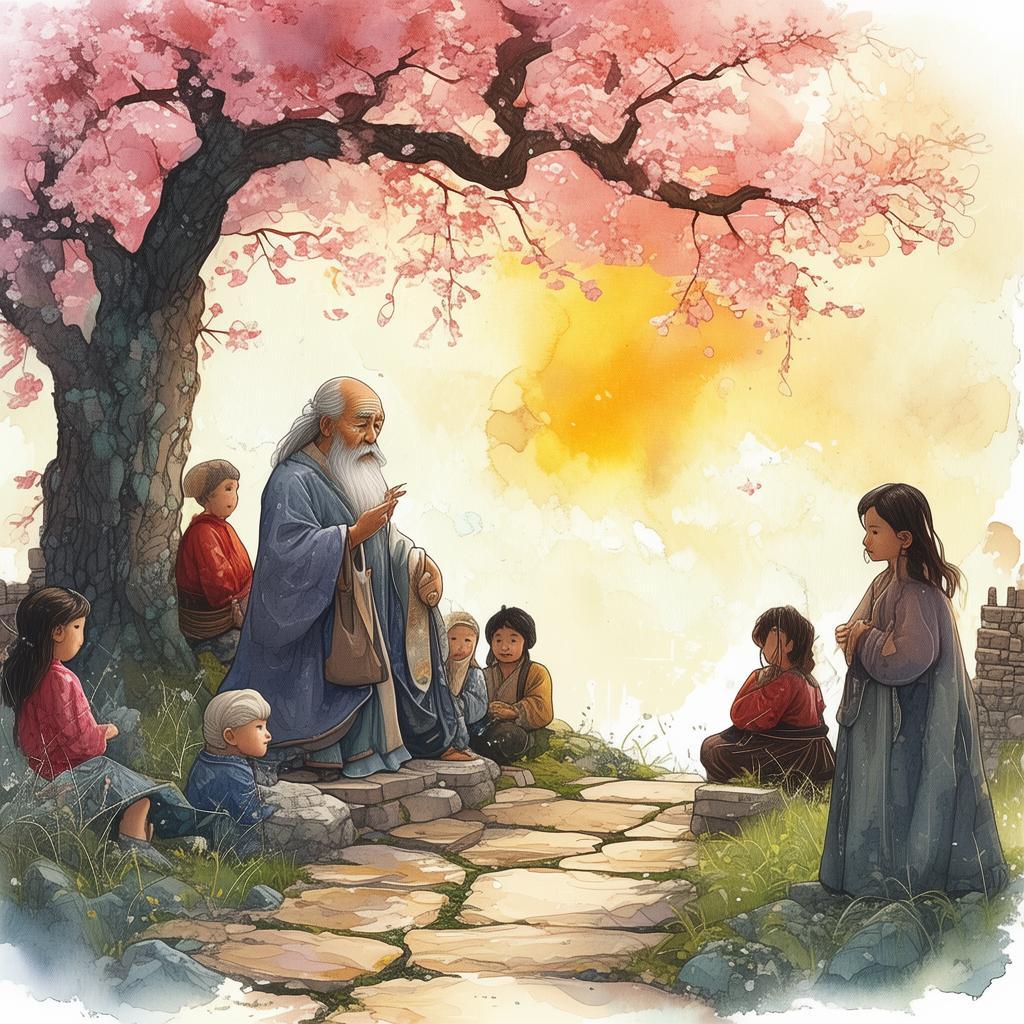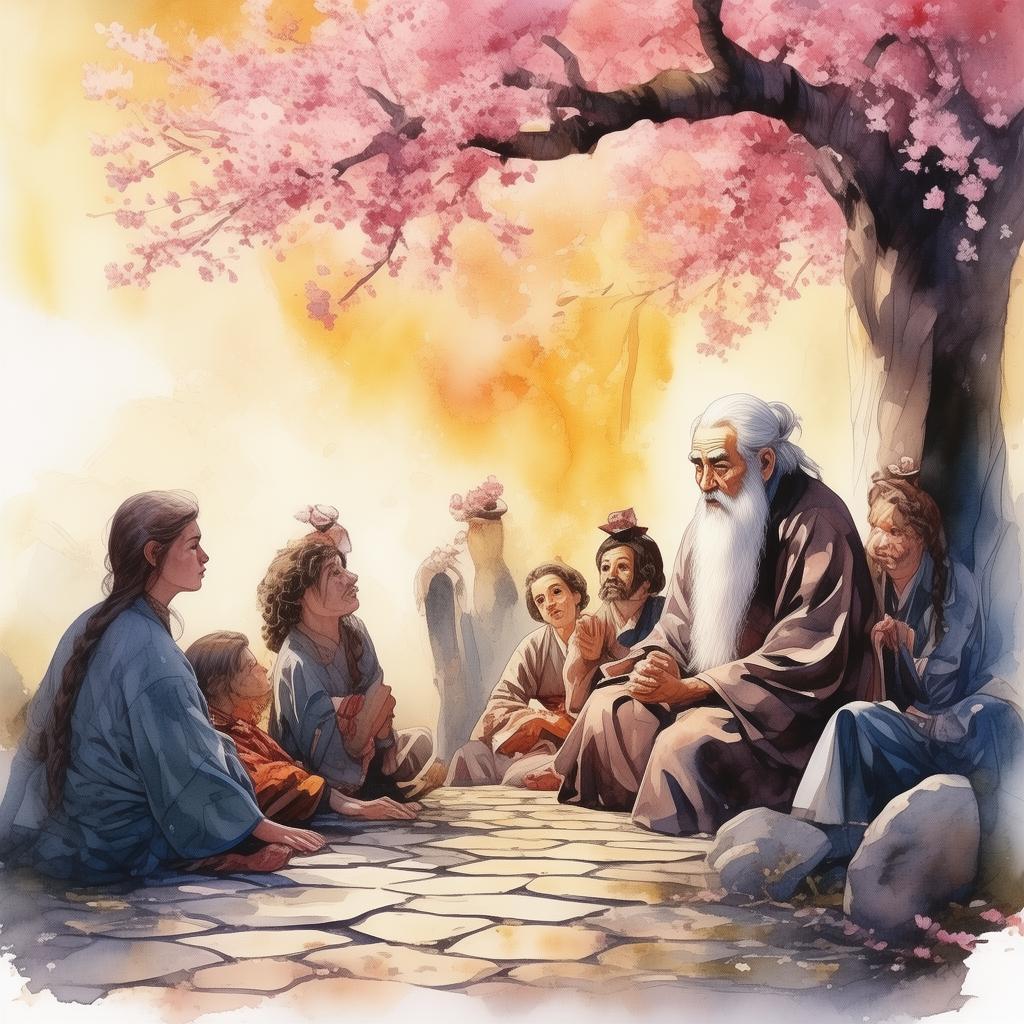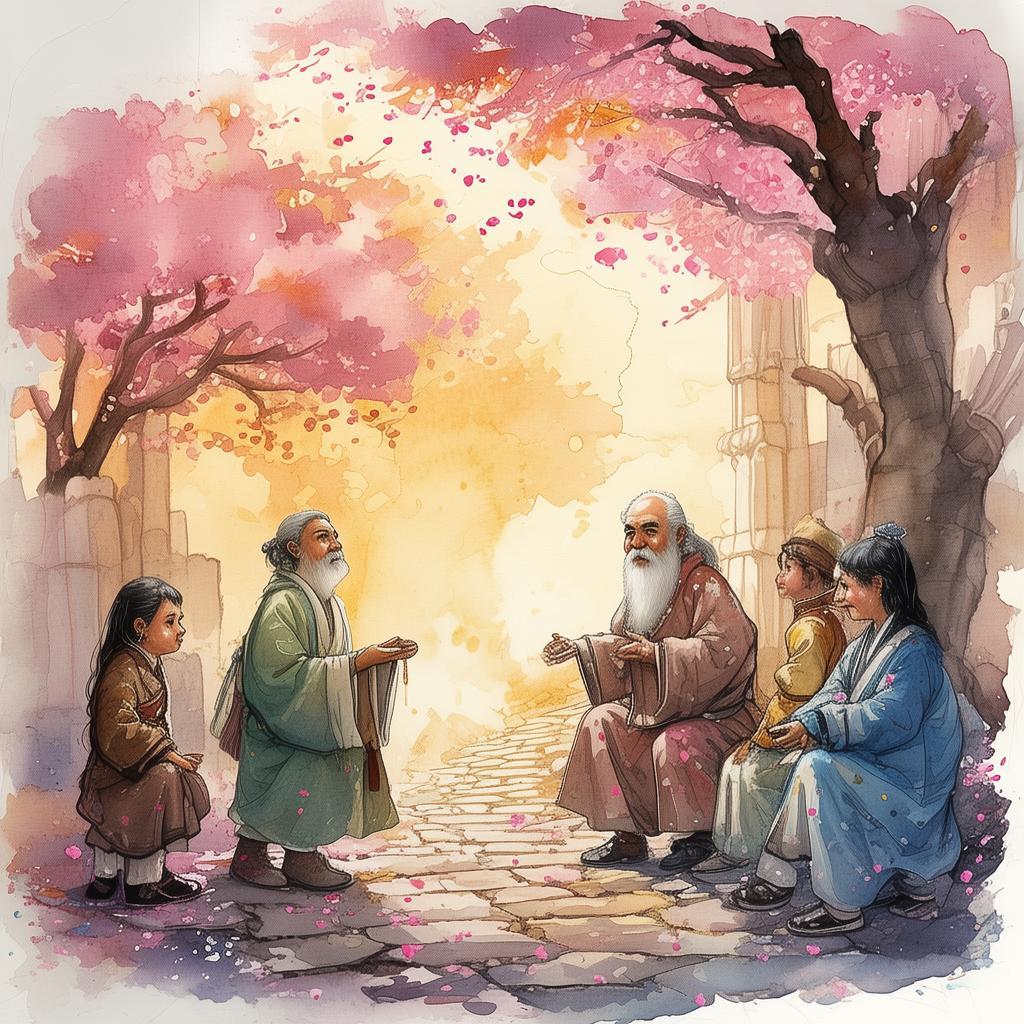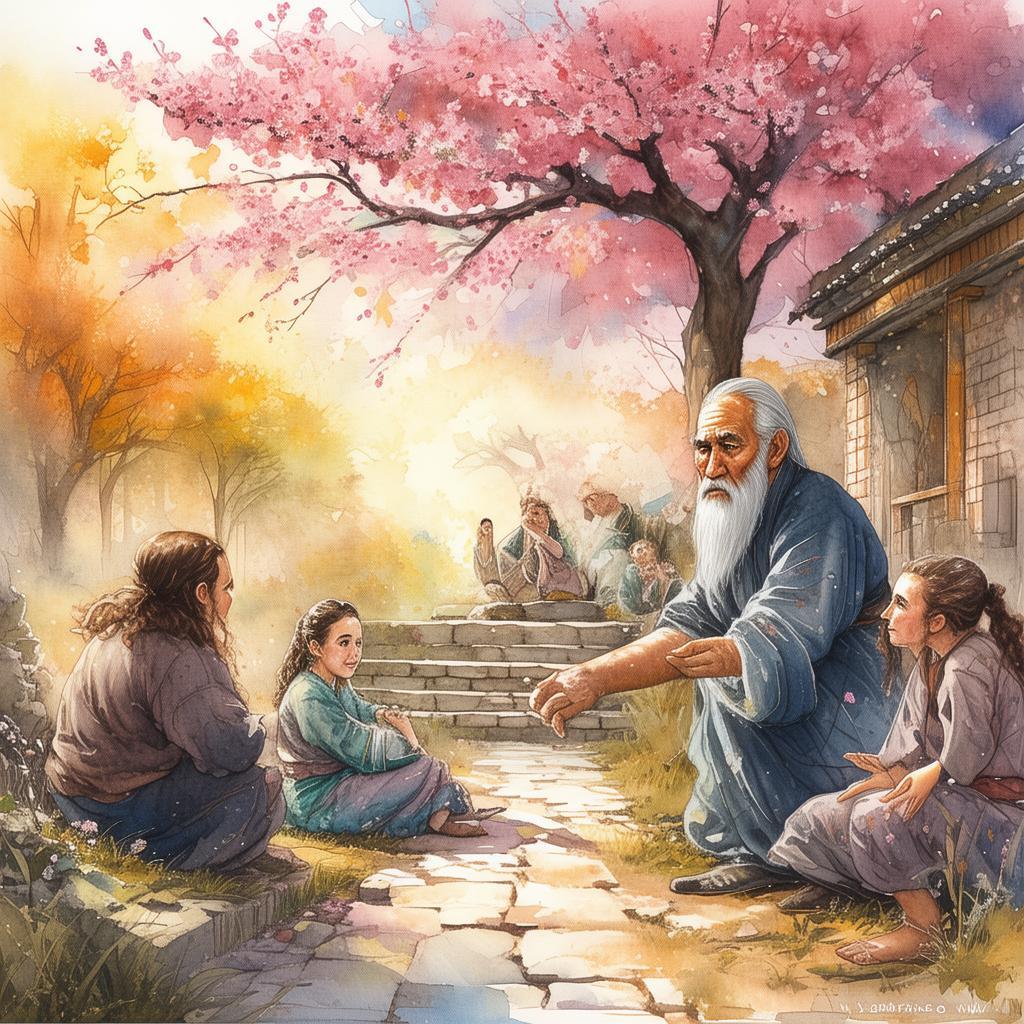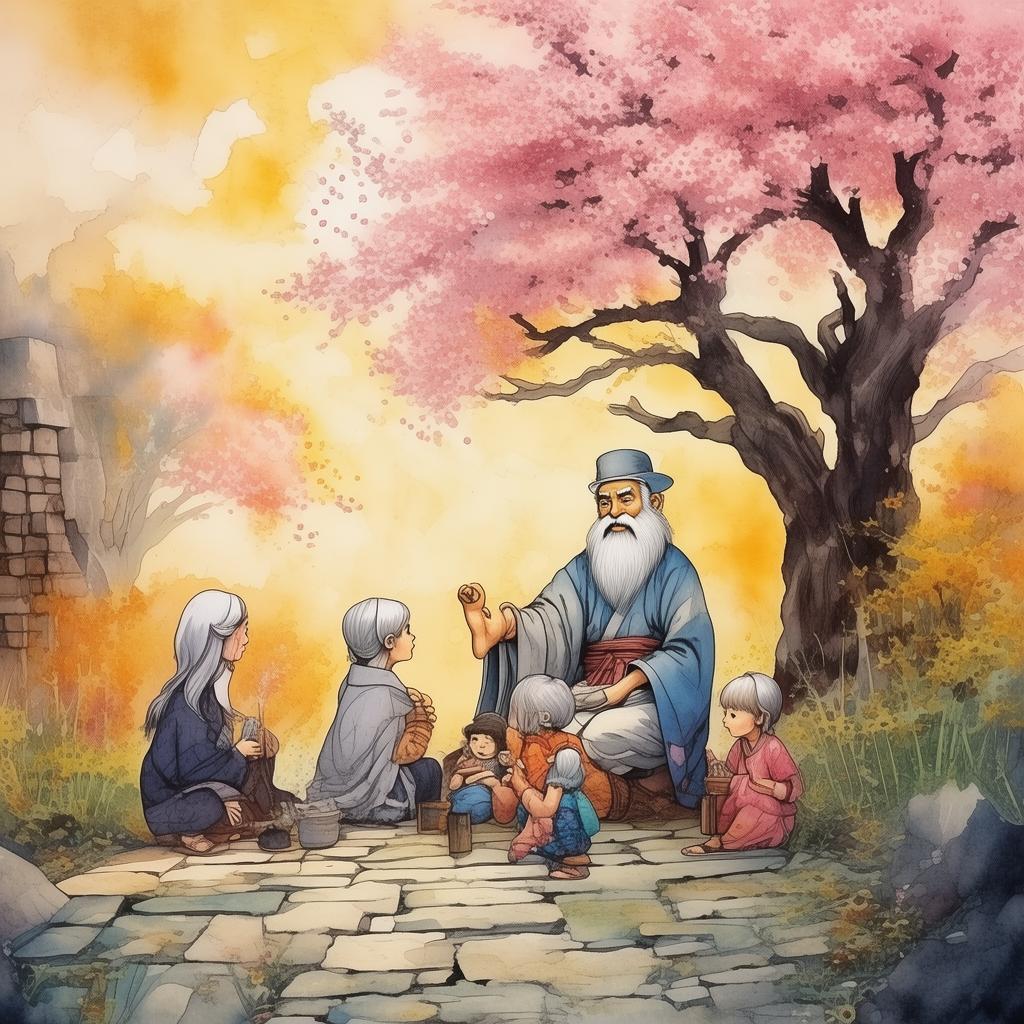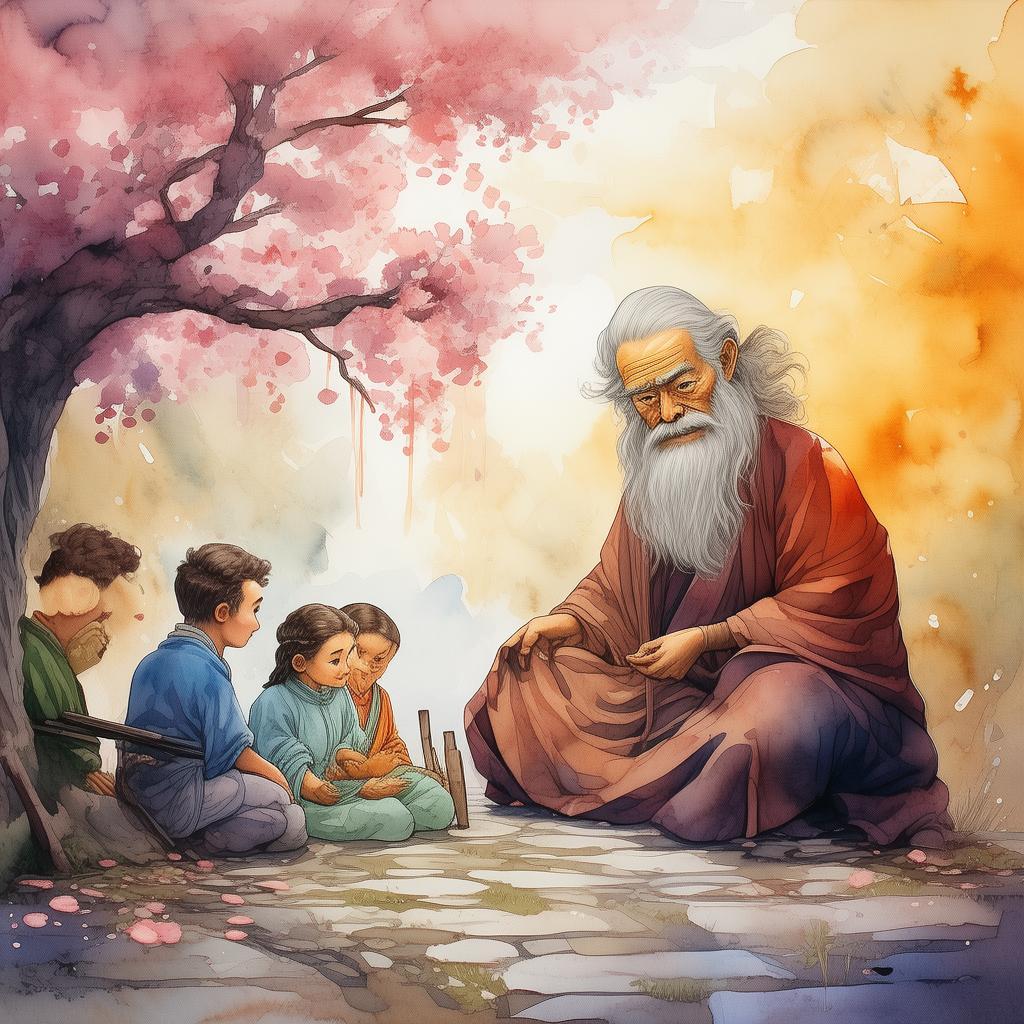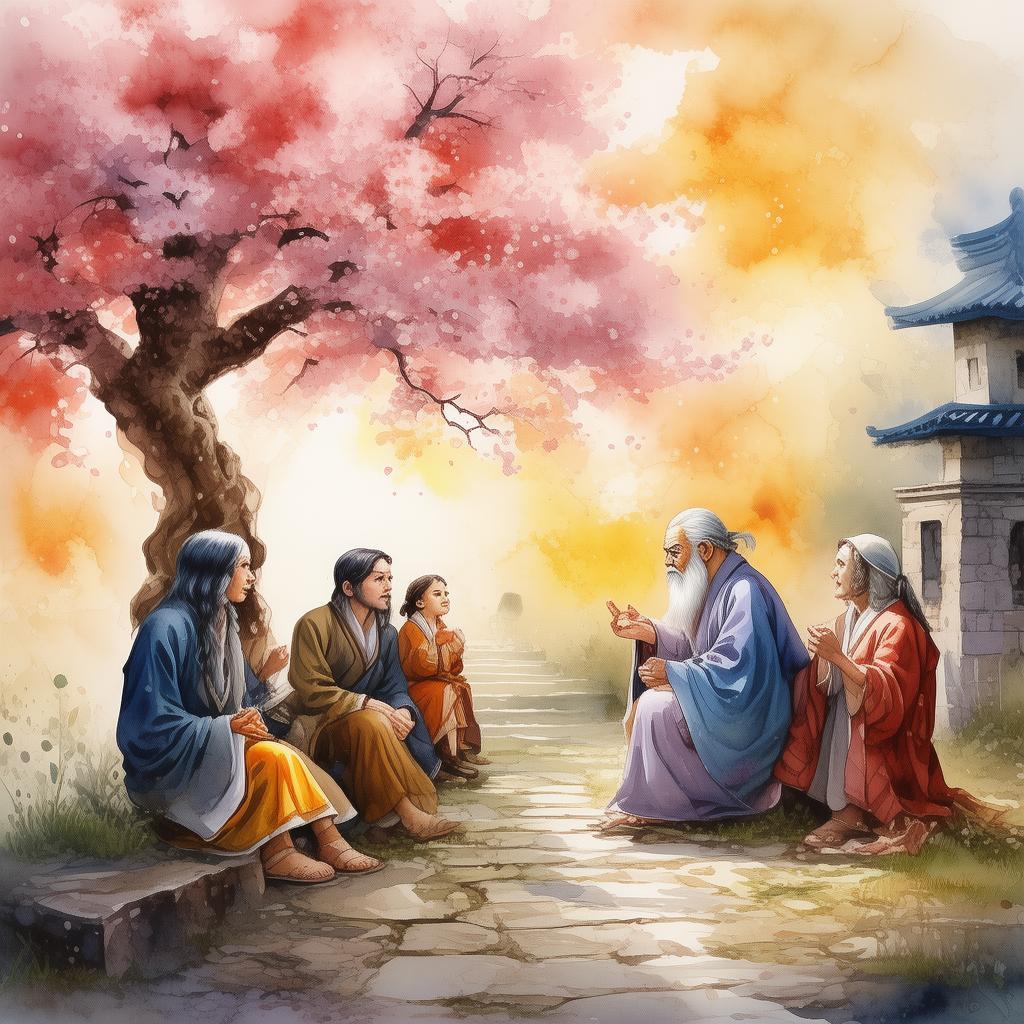Two Worlds, One Poem: The Tale of the One-Handed Poet
In the heart of ancient China, there lived a one-handed poet named Jing who was renowned for his profound and moving verses. His talent was not just in his words but in his ability to weave together the stories of two worlds, the mortal realm and the realm of the gods. Jing had a unique gift that allowed him to communicate with spirits, and his verses were believed to hold the power to influence the destinies of both worlds.
The story begins with Jing in the mortal realm, where he is struggling to survive in a world that does not accept his disability. Despite this, he continues to write, finding solace in his art. His verses, however, are not just a form of escape; they are a reflection of his experiences and the injustices he has witnessed.
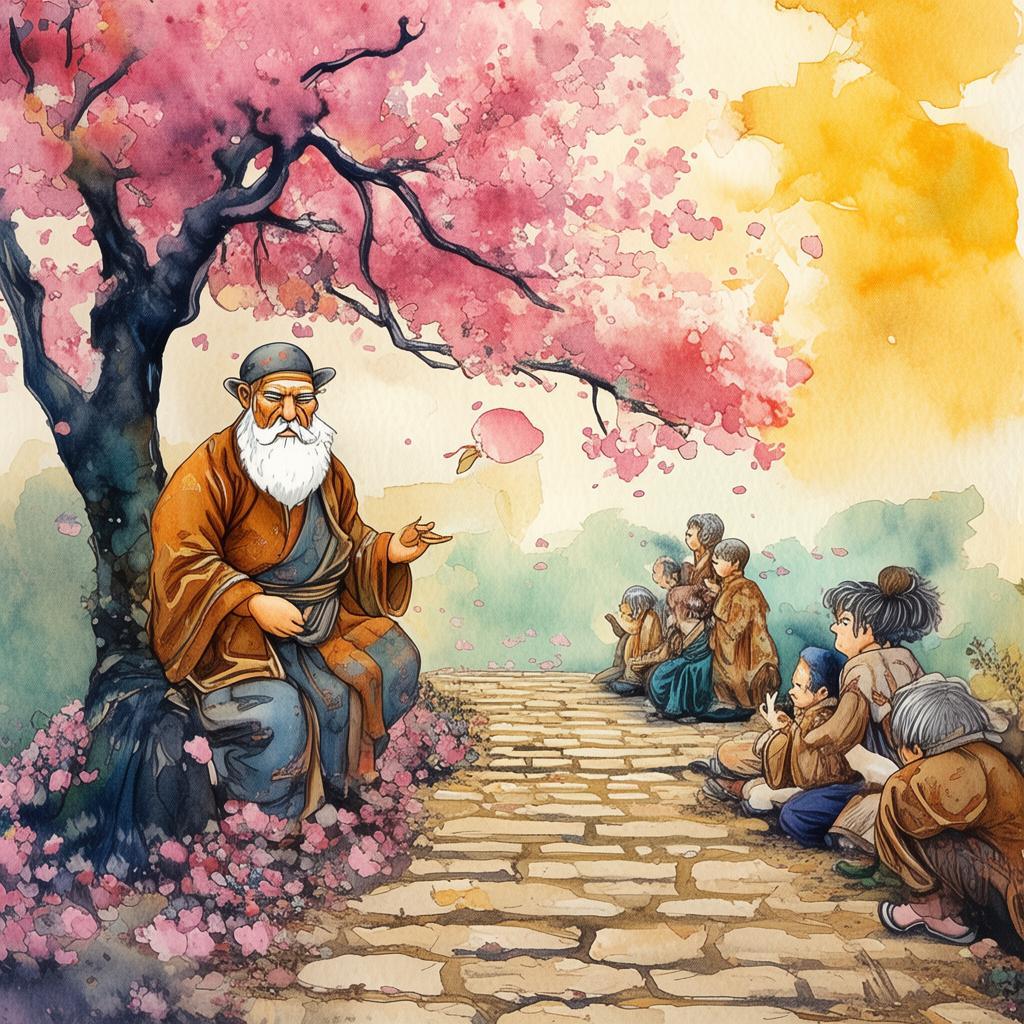
In the realm of the gods, there is a powerful deity named Lian who is intrigued by Jing's ability to connect with the mortal world. Lian decides to challenge Jing, offering him a chance to prove his worth by creating a verse that can bridge the two realms and bring about a change in the mortal world.
Jing accepts the challenge, and over the next few days, he retreats to a serene spot by the river, where he can reflect on his life and the lives of those around him. As he writes, his verses begin to take on a life of their own, with each line resonating with the pain and joy of the human experience.
One verse in particular, "The River of Sorrow," captures the essence of the mortal realm's struggles. It speaks of the hardships faced by the people, the sorrow that binds them, and the hope that always shines through. As Jing recites the verse, the spirits of the mortal world begin to respond, their emotions intertwining with his own.
In the realm of the gods, Lian is moved by Jing's verse and decides to intervene. He sends a divine wind to the mortal realm, which brings about a period of peace and prosperity. The people, touched by Jing's verse, begin to help one another, and the world starts to heal.
However, not everyone is happy with this change. A powerful yet greedy official, who had benefited from the chaos, becomes determined to stop Jing and Lian. He sends his henchmen to capture Jing, but the poet is protected by the spirits of the mortal world, who have been moved by his verse.
As the henchmen approach, Jing writes a second verse, "The Flame of Hope," which invokes the spirits of the gods to aid him. The spirits, now aligned with Jing's cause, rise up against the henchmen, driving them away.
The official, realizing that his power is waning, confronts Jing directly. In a climactic exchange, Jing challenges the official to a poetic duel, with the winner determined by whose verse resonates more deeply with the people.
The duel is fierce, with both Jing and the official pouring their hearts into their verses. In the end, it is Jing's "The River of Sorrow" that wins the hearts of the people, as it speaks to their collective experience and their longing for a better world.
The official, humbled by the power of poetry, surrenders and is stripped of his position. Jing, with his verse having brought about change, returns to his life in the mortal realm, now respected and loved by all.
Jing's story becomes a legend, a testament to the power of poetry and the resilience of the human spirit. His verses continue to bridge the gap between the mortal and divine realms, serving as a beacon of hope for all who seek it.
As years pass, Jing's legacy grows, with his verses inspiring generations to come. He becomes known as the One-Handed Poet, whose words have the power to change the world, one verse at a time.
✨ Original Statement ✨
All articles published on this website (including but not limited to text, images, videos, and other content) are original or authorized for reposting and are protected by relevant laws. Without the explicit written permission of this website, no individual or organization may copy, modify, repost, or use the content for commercial purposes.
If you need to quote or cooperate, please contact this site for authorization. We reserve the right to pursue legal responsibility for any unauthorized use.
Hereby declared.
